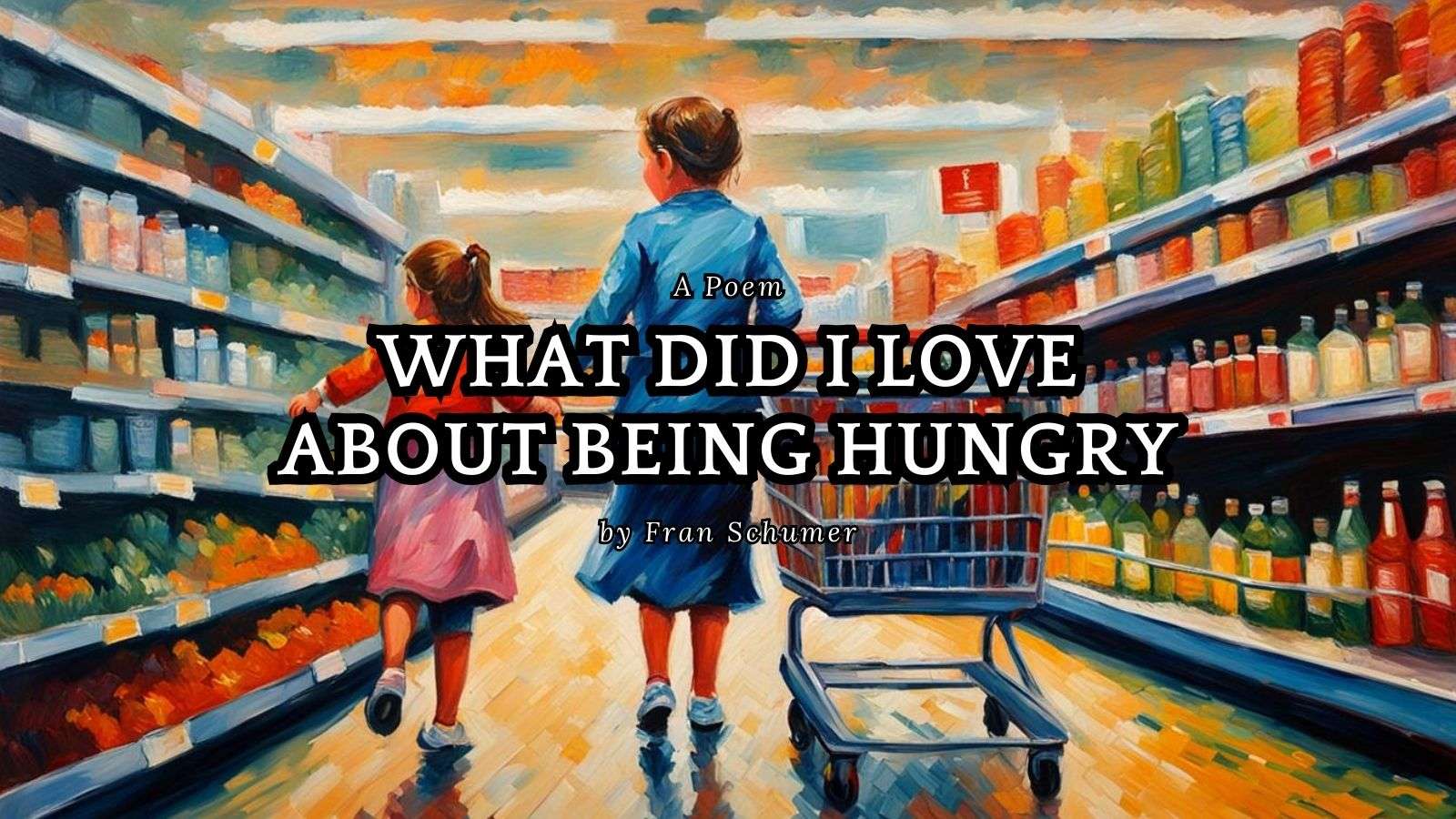What Did I Love About Being Hungry
by Fran Schumer
I fell in love with a kind I could cure
dreaming of Keebler cookies
in the aisles of Waldbaums
the happy elf on the package
my happy mother pushing the cart
with such force, such energy, such ardor.
She bowled cantaloupes down the counter
with an energy I lacked, me —
a stick in a sweater, my arms and legs blue
in the refrigerated aisles, me –
a size two in the puffy, expensive coat
the women bought to keep me warm
when I went away. I never came back.
My sister-in-law said I was spoiled.
She was right. Who would ever love me as much?
The tragedy of first, floating, amniotic love.
I never tasted those stupid, stale supermarket cookies,
fudge, peanut butter, plain, dumb vanilla.
Wanting is so much better than having
All my life I wanted her –
and all that remains is this hunger.
Fran Schumer’s poetry, fiction, and articles have appeared in various sections of The New York Times; also, Vogue, The Nation, The North American Review, and other publications. She won a Goodman Loan Grant Award for Fiction from the City University of New York and in 2021, a Martha’s Vineyard Institute of Creative Writing poetry fellowship. In 2022, her poem, Memento Mori, was a winner of the Martha’s Vineyard Poet Laureate’s 2022 Contest. Her Chapbook, Weight, was the first runner up in the Jonathan Holden Poetry Chapbook Contest and was published in 2022 by Choeofpleirn Press. A native of Brooklyn, N.Y., she studied political science at college but wishes she had spent more time studying Keats.
